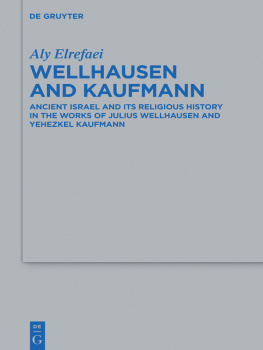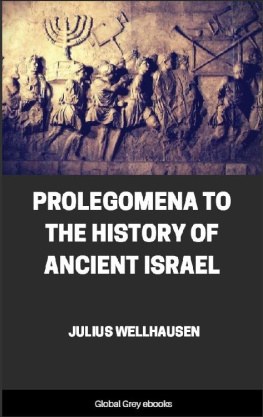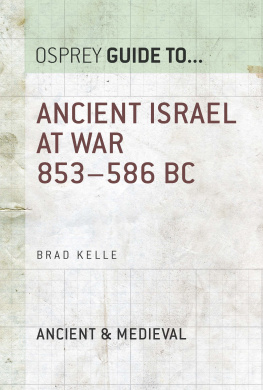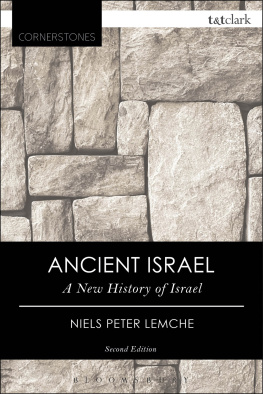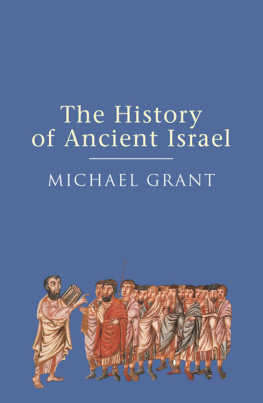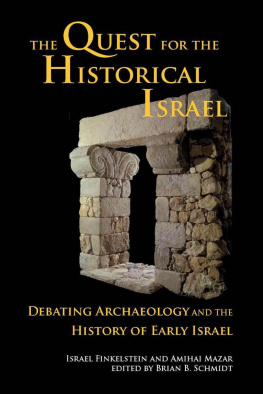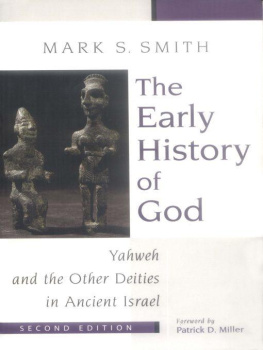
Aly Elrefaei
Wellhausen and Kaufmann
Beihefte zur Zeitschrift fr die alttestamentliche Wissenschaft
Edited by
John Barton, Reinhard G. Kratz and Markus Witte
Volume 490

ISBN 978-3-11-045212-9
e-ISBN (PDF) 978-3-11-045433-8
e-ISBN (EPUB) 978-3-11-045330-0
ISSN 0934-2575
Library of Congress Cataloging-in-Publication Data
A CIP catalog record for this book has been applied for at the Library of Congress.
Bibliographic information published by the Deutsche Nationalbibliothek
The Deutsche Nationalbibliothek lists this publication in the Deutsche Nationalbibliografie;detailed bibliographic data are available in the Internet at http://dnb.dnb.de.
2016 Walter de Gruyter GmbH, Berlin/Boston
www.degruyter.com
Acknowledgments
This book is a slightly revised edition of a PhD thesis, entitled The history of ancient Israel in the works of Julius Wellhausen (18441918) and Yehezkel Kaufmann (18891963), which was accepted by the University of Gttingen in February, 2015. The study was conducted with the financial support of a German-Egyptian Research Long-Term Scholarship. Without its kind sponsorship, this work could not have been completed.
Throughout the writing of this work, Professor Reinhard G. Kratz has been an able guide. He has provided the necessary encouragement and academic environment needed to accomplish my work. His scholarly insights have enlightened and opened new perspectives. I have learned vastly from his incisive comments. I also wish to express my gratitude to Professor Rudolf Smend, who gave so generously of his knowledge. In addition, I have learned and benefited from discussions with Professor Hermann Spieckermann. Grateful acknowledgment is due to Professor Sebastian Gnther and Professor Andreas Grnschlo for fruitful conversations.
I would also like to thank my colleagues Dr Peter Porzig and Dr Harald Samuel for their friendliness and endless support. I owe so much to my wife Shaimaa, and my children Omar and Oday; they have been a truly inspiring family. I am profoundly indebted to the publishing house de Gruyter as well as to the editors of BZAW for accepting my work for publication in the series. This work is dedicated to my parents who missed my love and care during my studies abroad.
Aly Elrefaei,
Gttingen 2015
Preface
Aly Elrefaeis study on Julius Wellhausen and Yehezkel Kaufmann is in many ways something unique. This is by all means true of its author and the selection of the topic. Aly Elrefaei is a native of Egypt and a Muslim who studied Semitic languagesparticularly the different stages of Hebrewas well as biblical studies at the University of Cairo. Already at his home university he engaged with the important philosopher of religion Yehezkel Kaufmann and his workswhich are largely published in Hebrewbefore coming to Gttingen in 2010 on a grant from the German Academic Exchange Service (DAAD) in order to write his dissertation. In Gttingen he learned German, not least in order to read the works of Julius Wellhausen, perhaps the most significant Christian biblical scholar and orientalist, in their original language. Alongside his dissertation research, Aly Elrefaei was involved as an associate member of the DFG-research training group (Graduiertenkolleg) entitled Gtterbilder Gottesbilder Weltbilder up to its conclusion in December 2012 as well as in the international network Old Testament Studies: Epistemologies and Methods (OTSEM). The dissertation was completed in 2014 and was defended during the summer semester of 2015 in the field of Religious Studies at the Philosophical Faculty of the Georg-August-Universitt Gttingen.
The topic of the dissertation itself is also unique. In current scholarship on the Hebrew Bible, neither Wellhausen nor Kaufmannthe two giants and antipodes of biblical studies during the transition from the 19th to the 20th centuryplay a major role, at least not explicitly. This is the case for several reasons. One reason is the language barrier, since today the discussion is largely conducted in English and few scholars in the field also have command of both German and Modern Hebrew. Another reason is that it is often thought that the questions and methodological approaches of the 19th and early 20th centuries, the period of historicism, have been outpaced and thus no longer need to be known. In fact, however, both Wellhausen and Kaufmann continue to exert a much stronger influenceeven if in the backgroundthan we are perhaps aware. These two figures represent two diametrically opposed perspectives for relating the biblical narrative to history, both of which have influenced the discussion up to the present. While some share the presupposition of the biblical narrative that Israel had a distinctive place in the world of the ancient Near East from the beginning and that everything happenedmore or lessas the Bible recounts, others assume that Israel was a nation like any other and that the awareness of its distinctiveness only developed gradually under certain conditions and was a claim that
Stands closer to the end rather than the beginning of ancient Israels history and the history of biblical literature.
The great merit of Aly Elrefaeis study is to have retraced and analyzed in detail the works of Wellhausen and Kaufmann with focused attention to the question of ancient Israels earliest history, thus making their views on this question accessible to scholars today. Elrefaei precisely works out their methodological principles, their biographical, historical, and intellectual backgrounds, the setting of course in their argumentation, as well as their commonalities and differences. His treatment of Kaufmann makes accessible a body of work that is practically unknown in German- and English-language scholarship, and his treatment of Wellhausen and the comparison of the two scholars (re-)opens to English-language scholarship a means of accessing German intellectual history and historical research during the late 19th and early 20th centuries. The comparison of the two scholars reveals that the opposing positions of Wellhausen and Kaufmann are, of course, also influenced by personal factors and by their respective historical contexts. All the more striking is that both figures had more in common than they themselves perhaps were aware of or would have liked: source criticism, the figure of Moses as a starting point, the leading role of religion in Israels early history, and a fixation with the question of the law. Their differences are not least based on their dating of the law, namely, of the Priestly writing, which is debated once again today on linguistic grounds. In this respect, as Aly Elrefaei impressively demonstrates, the notion of theocracy, its connection to prophecy, as well as the idea of monotheism play a decisive role. While Wellhausen saw a sort of evolution in the emergence of the law and of monotheism, Kaufmannsimilarly, it should be mentioned, to Jan Assmann todayreckoned with a revolution that stood at the beginning of Israels history.
It is with good reason that the author restricts himself to analysis and description and abstains from making a judgment for or against one of the two historical reconstructions. At the end of the study, he poses the question of which position stands up to criticism and answers this question in a balanced manner: The question then arises as to which of the theories, Wellhausens or Kaufmanns, stands up to criticism. I am afraid to say that answering this question in a direct way could do an injustice to the great contributions of Wellhausen and Kaufmann. It is true that the works of these two masters belong to their times and it would be unreasonable to see their thoughts only from todays perspective. Nevertheless, we should understand clearly that looking at the future we need to know where we are. With this borne in mind, the need to examine earlier and classic works is necessary. I am convinced that instead of a complete denial of Wellhausen and Kaufmanns reconstruction, we should look for what can be learned from the works of these two gifted scholars. For some of the thoughts of Wellhausen and Kaufmann in the history of ancient Israel and its religion still surprise us (p. 274). With this modest statement, Aly Elrefaei indicates that his dissertation has laid the groundwork for further investigations. Such future studies would above all need to explain how the reconstructions of Wellhausen and Kaufmann relate to the methodological approaches and recent theories in the fields of History, Religious Studies, and in the Humanities more generally, in which certain ideas have been discovered anew that were already considered by Wellhausen and Kaufmann and only formulated differently.
Next page
